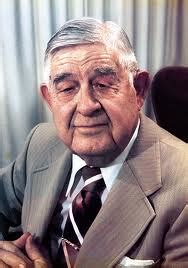Ein Zitat von Eric Fischl
Tatsächlich gibt es in der Kunstwelt eine Verachtung für die Diskussion über das Publikum. Wenn Sie von Künstler zu Künstler sagen: „Was denken Sie über das Publikum?“ Sie würden wahrscheinlich sagen: „Ich denke nicht an das Publikum, ich denke nur an meine Arbeit“, dabei ist das Publikum ein so wichtiger Teil.
Verwandte Zitate
Ich verstehe Choreografen nicht, die sagen, dass ihnen das Publikum egal sei oder dass sie ihre Werke gerne nicht öffentlich präsentieren würden. Ich denke, Tanz ist eine Form der Kommunikation und das Ziel ist der Dialog mit dem Publikum. Wenn mir ein Zuschauer erzählt, dass er geweint hat oder dass der Tanz ihn dazu gebracht hat, über seine eigene Reise oder die eines Familienmitglieds nachzudenken, dann ist die Arbeit erfolgreich.
Ich schreibe nicht für eine bestimmte Zielgruppe. Ich arbeite als Künstler, und ich denke, dass das Publikum eines ist, nämlich ich selbst, und ich muss mich als Künstler zufriedenstellen. Deshalb sage ich immer, dass ich für dieselben Leute schreibe, für die Picasso gemalt hat. Ich glaube, er hat für sich selbst gemalt.
Ich denke nicht an das Publikum, ich denke nicht daran, was sie glücklich macht, denn ich habe keine Möglichkeit, es zu wissen. Der Versuch, darüber nachzudenken, was Unterhaltung ausmacht, ist eine sehr japanische Sache. Die Leute, die so denken, sind altmodisch. Sie stellen sich das Publikum als eine Masse vor, aber tatsächlich ist jeder Mensch im Publikum anders. Unterhaltung für jedermann gibt es also nicht
Ich denke, wenn man jünger ist, hat man als Schauspieler viel mehr die Vorstellung, dass man dem Publikum etwas tut. Aber mit zunehmender Erfahrung, denke ich, macht man sich weniger Gedanken über die Erfahrungen des Publikums und konzentriert sich auf die Zusammenarbeit mit den anderen Schauspielern, und das lässt das Publikum tendenziell mehr arbeiten.
Kein Prediger in einer kleinen Kirche soll denken, dass er kein Publikum für seine Botschaft hat. Eine unsichtbare Schar von Zuschauern umgibt ihn! Kein Christ, der im Dunkeln sündigt, soll denken, er sei unbeobachtet. Er ist von einer so großen Wolke von Zeugen umgeben! Gewiss wissen sie im Himmel, was auf der Erde vor sich geht.
Redner haben Freude am öffentlichen Reden, wenn sie erkennen, dass es bei einer Rede nur um das Publikum und nicht um den Redner geht. Die meisten Redner sind so sehr mit ihren eigenen Sorgen beschäftigt und so sehr darauf bedacht, bestimmte Punkte zu behandeln oder eine bestimmte Botschaft zu vermitteln, dass sie sich nicht die Mühe machen, mehr als oberflächlich über das Publikum nachzudenken. Und die Ironie besteht natürlich darin, dass es keine Hoffnung gibt, Ihre Botschaft rüberzubringen, wenn das die ganze Energie ist, die Sie in das Publikum stecken. Lassen Sie also los und schenken Sie dem Publikum den Moment.
Wenn jemand sagt „Das passt zu mir“, meint er „Ich stimme mit Ihnen überein“ oder „Ich stimme mit Ihnen überein“. Sobald Ihre Ideen beim Publikum Anklang finden, werden sie sich ändern. Aber der einzige Weg, echte Resonanz zu erreichen, besteht darin, diejenigen zu verstehen, mit denen man in Resonanz treten möchte. Sie müssen Zeit damit verbringen, über Ihr Publikum nachzudenken. Was verbindet sie, was treibt sie an? Denken Sie über Ihr Publikum nach und darüber, was es denkt, bevor Sie mit der Erstellung Ihrer Präsentation beginnen. Es wird Ihnen helfen, Überzeugungen und Verhaltensweisen Ihrer Zielgruppe zu erkennen, mit denen Sie eine Verbindung herstellen können. Resonanz mit.
Als ich mit dem Journalismus anfing, wussten Sie, dass es da draußen ein Publikum gab und dass Sie wollten, dass die Leute lesen, was Sie produzierten. Aber es kam mir auch so vor, als hätten Sie für das, was Sie taten, nur begrenzte Möglichkeiten, das Publikum zu formen oder ein Publikum zu gewinnen. Also hast du nicht wirklich viel darüber nachgedacht.






































